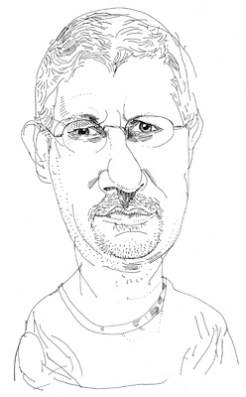Virtual Memories Show 227: Ben Schwartz
Podcast: Play in new window | Download
Subscribe: Spotify | TuneIn | RSS | More
“Twitter is the best source of political humor now. It’s better than any show on TV. It’s hard to compete with a million writers.”
 Comedy writer, journalist and screenwriter Ben Schwartz joins the show to talk serious laughs. We discuss his work on American humor between the wars, writing for Billy Crystal on the Oscars and his contributions to David Letterman’s monologues, the profundity of Jack Benny and the importance of Bob Hope, his amazing (but unproduced) screenplay about Bob Hope and Larry Gelbart in Korea, how Jaime Hernandez’ comics prepared him to move to LA, his take on Charlie Hebdo, and what it’s like having the same name as the actor who played Jean-Ralphio on Parks & Rec! Give it a listen!
Comedy writer, journalist and screenwriter Ben Schwartz joins the show to talk serious laughs. We discuss his work on American humor between the wars, writing for Billy Crystal on the Oscars and his contributions to David Letterman’s monologues, the profundity of Jack Benny and the importance of Bob Hope, his amazing (but unproduced) screenplay about Bob Hope and Larry Gelbart in Korea, how Jaime Hernandez’ comics prepared him to move to LA, his take on Charlie Hebdo, and what it’s like having the same name as the actor who played Jean-Ralphio on Parks & Rec! Give it a listen!
“Part of being able to sell stories is having an idea that other people don’t have, having a point of view or knowledge that other people don’t have.”
Enjoy the conversation! Then check out the archives for more great episodes!
Lots of ways to follow The Virtual Memories Show! iTunes, Twitter, Instagram, Soundcloud, Facebook, Tumblr, and RSS!
About our Guest
Ben Schwartz is a comedy writer and journalist whose work began appearing at Suck.com (as Bertolt Blecht) and has appeared since in The New Yorker, Vanity Fair, Letterman monologues, the 84th Oscars, The Baffler, The New York Times, on the radio show Wits, and with comics collaborators like Ivan Brunetti, Peter Bagge, and Drew Friedman. To what degree the work is considered journalism or satire depends on the legal circumstances of the moment and how serious your libel suit looks. He is currently on assignment for Vanity Fair and working on a history of American humor set between the two world wars, set to come out from Fantagraphics. He’s on Twitter as @benschwartzy.
Credits: This episode’s music is Nothing’s Gonna Bring Me Down by David Baerwald, used with permission from the artist. The conversation was recorded at Mr. Schwartz’s home on a pair of Blue enCORE 200 Microphones feeding into a Zoom H5
digital recorder. I recorded the intro and outro on the same equipment in a hotel room in Quincy, MA. All processing and editing done in Adobe Audition CC
. Photo of Mr. Schwartz by me. It’s on my instagram.



















